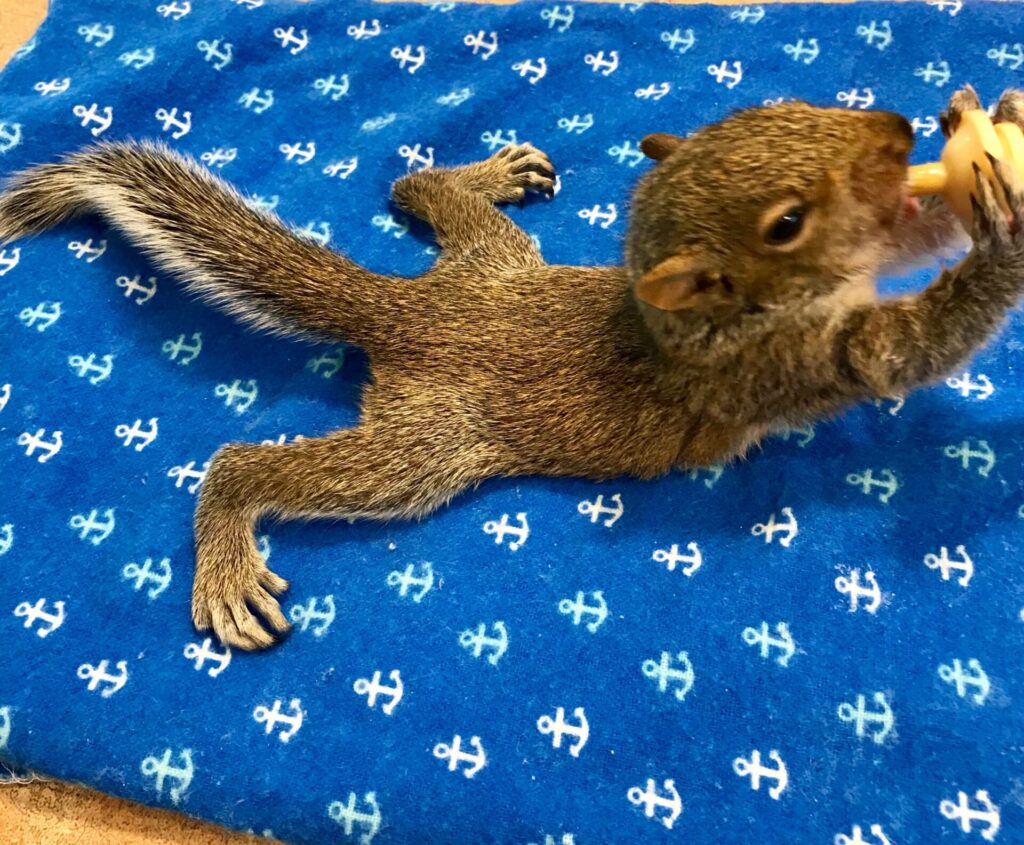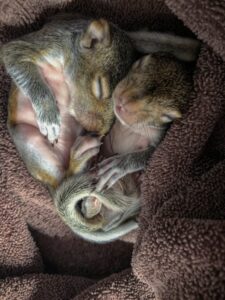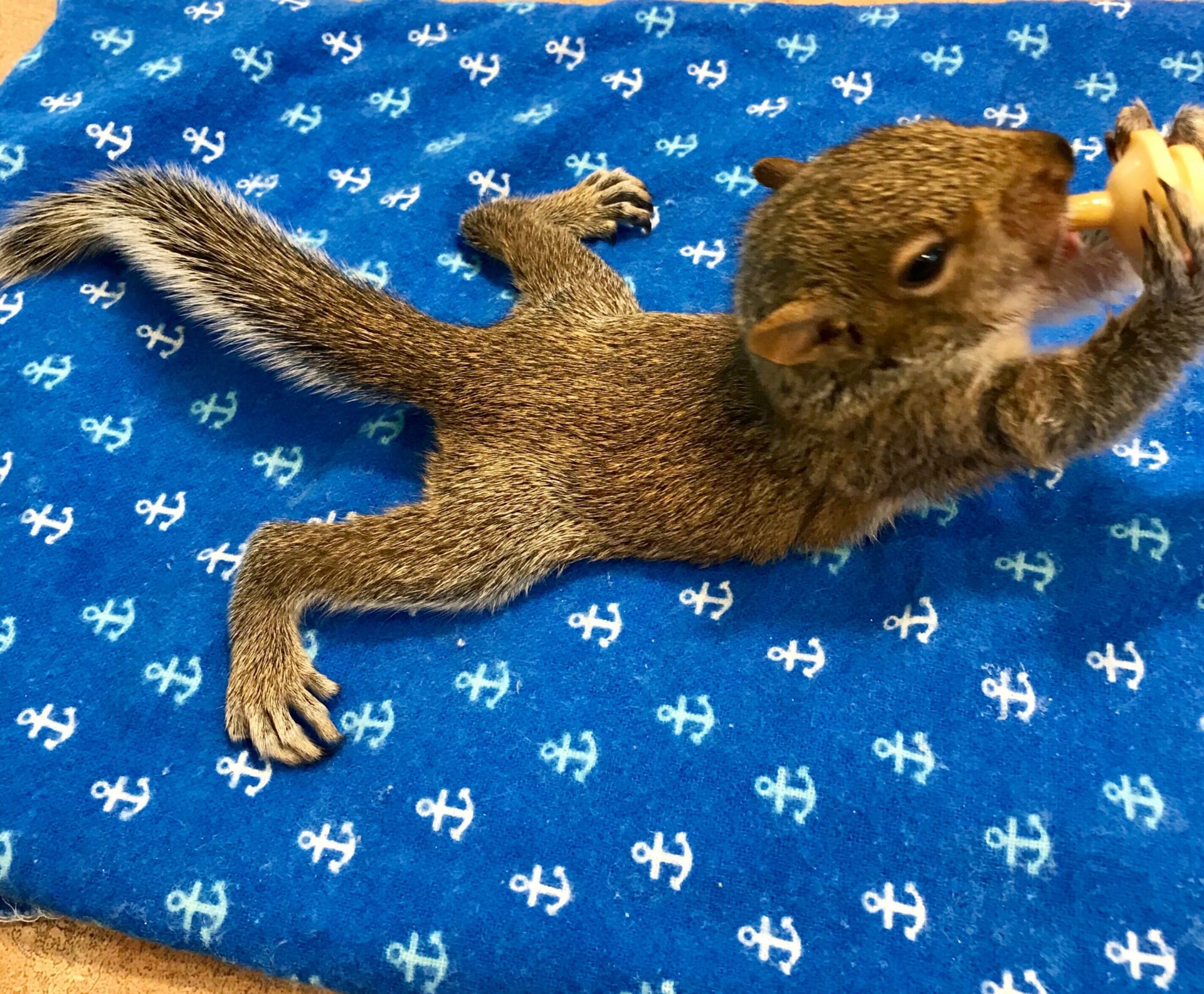By Allen Brewer
Special to Hottytoddy.com
agbrewer@go.olemiss.edu

While walking to class, two Ole Miss students discovered a baby squirrel who was visibly too young and fragile to be away from its mother.
Students Bethany Sills and cousin Anabella Sills found the squirrel next to a tree in front of Lamar Hall. The squirrel, which experts later estimated to be around six weeks old, was inquisitive and not shy about greeting the students.
Not knowing who to call to take care of the squirrel, the students called Mike Merchant from Wildlife Resolutions. Merchant said the animal was healthy when he received it but was a little hungry and dehydrated.
Merchant took the squirrel to The North Mississippi Mammal Rehab, Inc. where a caretaker he knew had a mother squirrel and two little ones already in custody. He said that the squirrel was taken in and that it is expected to be released in another week.

NMMR is the only organization licensed in North Mississippi for rehabilitating mammals such as squirrels, foxes and raccoons. The organization was recently founded in January after Mississippi Wildlife Rehabilitation, Inc. realized it could no longer provide to all animals due to its growth in its services. The MWR now only treats birds and reptiles.
At this time, NMMR is a nonprofit which serves 11 counties, including Lafayette, and employs 12 volunteer workers out of their homes. Melissa Gilbert, the director of NMMR, usually acts as the go-between for people who have found animals and the volunteers.
Gilbert advocates for those who find a baby animal to let it be. Even if the animal appears to be alone, Gilbert said nine out of ten times the mother will not be far.
When a baby animal has been found, Gilbert asks the rescuer if he or she has seen the animal’s mother. If the person can not see the mother in the area, she asks them to observe from a distance in case the mother is hiding or foraging for food.
“[A] mom always does a better job caring for their young than we can in rehabilitation,” Gilbert said.
Even if the rescuer touches the baby animal, Gilbert said it would not necessarily keep the mother and the baby animal from reuniting. In such a case, the person should step away from the animal in case it goes back to its mother.
If the animal is injured, however, the animal would need to be taken into rehabilitation as soon as possible, according to Gilbert. NMMR accepts most injured animals and orphaned babies depending on the animal. Some adult animals, however, may not be able to be rehabilitated due to safety concerns for the volunteers and the heightened risk of disease.
Gilbert warns the public to use precautions when handling wild animals. While not all animals will have rabies, it is possible that the animal has the potential to carry disease. Gilbert advises those who have to handle the animal to use gloves.

“We are also here to answer questions the public may have,” Gilbert said. “We not only rehabilitate injured and orphaned wildlife, but we also aid in conservation and offer vital information to the public.”
For those who have more questions or wish to report an injured/orphaned animal, they can call the wildlife hotline at 1-662-429-1646.

